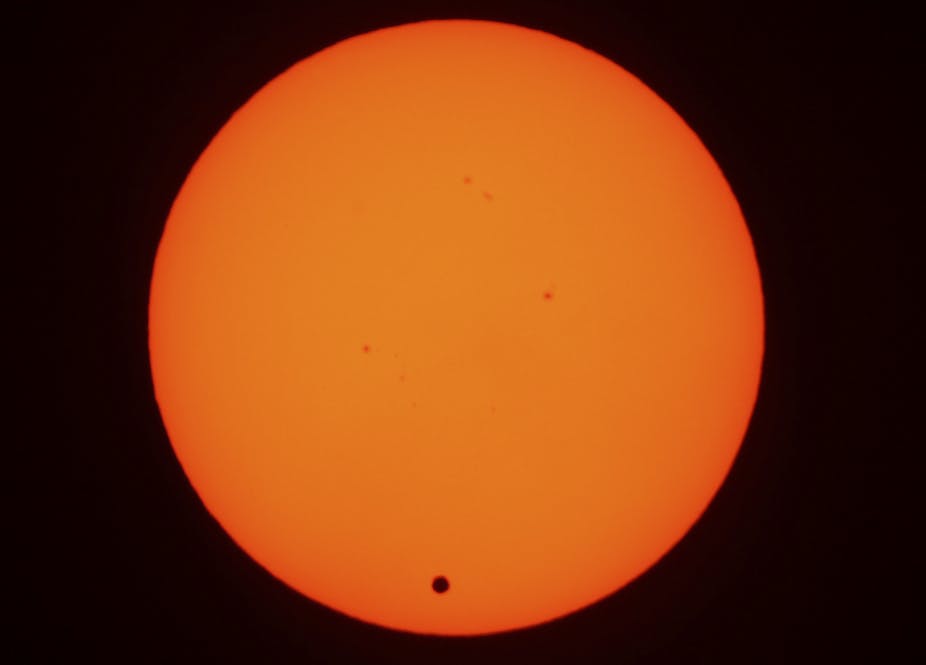Update: to observers on Australia’s eastern seaboard, the transit of Venus is now complete.
The two time-lapse videos below, provided by the University of Queensland, show Venus first passing in front of the sun and disappearing from view, respectively.
At around 8.15am this morning (AEST), Venus embarked on a nearly-seven-hour-long journey across the surface of the sun.
Transits of Venus occur in pairs, eight years apart, and with more than a century between those pairs you won’t get another chance to see a transit until, uh, 2117, when you’ll be dead, or extremely decrepit.
It’s now or never, people. Click on the links below for our expert coverage and enjoy the live-streaming video of the transit courtesy of the University of Queensland:
Helen Maynard-Casely:
“Wow, what an amazing morning. I can’t quite contain my joy at the clear skies here in Melbourne. We haven’t seen the sun for three days but at the vital break of dawn on Venus transit day, a few fluffy clouds graced the horizon instead of a carpet of greyness …” Read more.
Duncan Steel:
“I am not suggesting that anyone should watch the whole thing. What I am suggesting is that everyone should take a peek for a minute or two, and reflect on the transit’s special significance. If such infrequent events did not take place, we probably wouldn’t speak English, nor play cricket …” Read more.
Jonti Horner:
“As you’re reading this, people all over the world are gearing up to witness this century’s final transit of Venus. Over a period of around six hours and 40 minutes, from early morning until the early afternoon, Venus will be silhouetted against the sun, slowly making its way from right to left, across the lower (northern) half of the sun’s disk …” Read more.
Helen Maynard-Casely:
“The transit on June 6 will be old-hat for the Kepler spacecraft. Orbiting alongside Earth since 2009, Kepler is monitoring hundreds of thousands of stars looking for similar events – small planets passing in front of their stars …” Read more.
David Coward:
“As you’ll no doubt know by now, a rare celestial event is occurring. Venus will pass between the earth and the sun – the transit of Venus. You might also already know that this cosmic spectacle is not without cultural significance …” Read more.
Ian Musgrave:
“While some of you will have taken time off work (or made simple observing devices to take to work), not everybody can do this. Also, your locality may be clouded out. Webcams to the rescue! …” Read more.

